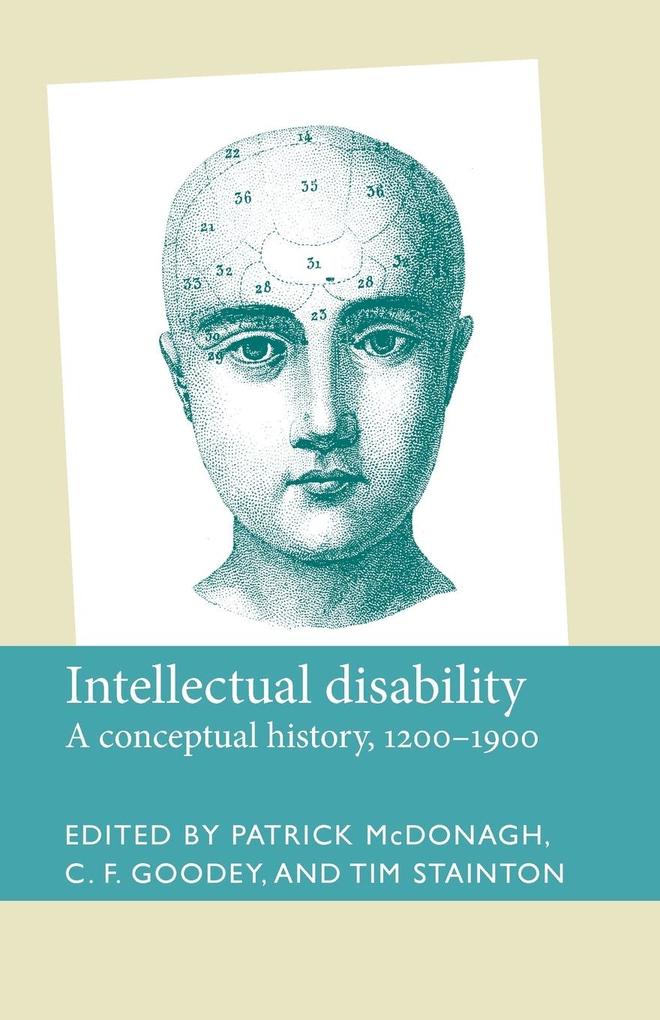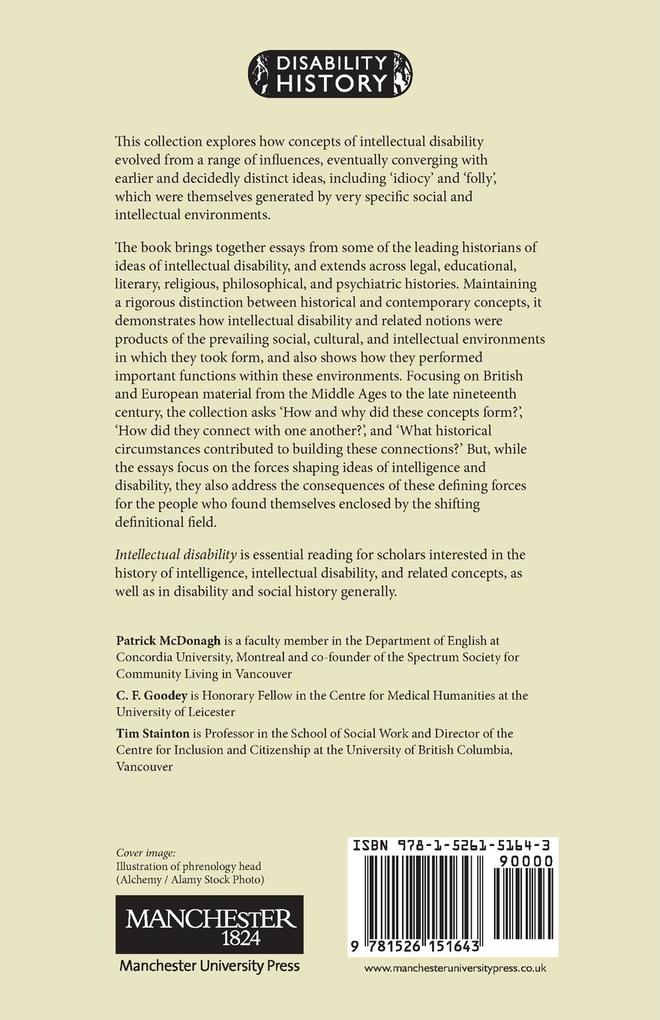
Zustellung: Mo, 26.05. - Fr, 30.05.
Versand in 6 Tagen
VersandkostenfreiBestellen & in Filiale abholen:
This collection of essays investigates the historical genealogy of our contemporary ideas of intellectual or learning disability. The essays engage with literary, educational, cultural, legal, religious, psychiatric and philosophical histories to track how and why these precursor ideas arose and explore how they helped shape current concepts.
Inhaltsverzeichnis
1 Introduction: the emergent critical history of intellectual disability - Patrick McDonagh, C. F. Goodey, and Tim Stainton
2 Conceptualization of intellectual disability in medieval English law - Wendy J. Turner
3 'Will-nots' and 'Cannots': tracing a trope in medieval thought - Irina Metzler
4 'Some have it from birth, some by disposition': foolishness in medieval German literature - Janina Dillig
5 Exclusion from the eucharist: the seventeenth-century church and the creation of 'intellectually' disabled people - C. F. Goodey
6 'A defect in the mind': cognitive ableism in Swift's Gulliver's Travels - D. Christopher Gabbard
7 The age of sensationalism and the construction of intellectual disability - Tim Stainton
8 Peter the 'wild boy': what Peter means to us - Katie Branch, Clemma Fleat, Nicola Grove, Tim Lumley Smith, and Robin Meader
9 'Belief', 'opinion', and 'knowledge': the idiot in law in the the long eighteenth century - Simon Jarrett
10 Idiocy and the conceptual economy of madness - Murray K. Simpson
11 Visiting Earlswood: the asylum travelogue and the shaping of 'idiocy' - Patrick McDonagh
Select bibliography
Index
2 Conceptualization of intellectual disability in medieval English law - Wendy J. Turner
3 'Will-nots' and 'Cannots': tracing a trope in medieval thought - Irina Metzler
4 'Some have it from birth, some by disposition': foolishness in medieval German literature - Janina Dillig
5 Exclusion from the eucharist: the seventeenth-century church and the creation of 'intellectually' disabled people - C. F. Goodey
6 'A defect in the mind': cognitive ableism in Swift's Gulliver's Travels - D. Christopher Gabbard
7 The age of sensationalism and the construction of intellectual disability - Tim Stainton
8 Peter the 'wild boy': what Peter means to us - Katie Branch, Clemma Fleat, Nicola Grove, Tim Lumley Smith, and Robin Meader
9 'Belief', 'opinion', and 'knowledge': the idiot in law in the the long eighteenth century - Simon Jarrett
10 Idiocy and the conceptual economy of madness - Murray K. Simpson
11 Visiting Earlswood: the asylum travelogue and the shaping of 'idiocy' - Patrick McDonagh
Select bibliography
Index
Produktdetails
Erscheinungsdatum
16. März 2021
Sprache
englisch
Seitenanzahl
274
Herausgegeben von
C. F. Goodey, Patrick McDonagh, Timothy Stainton
Verlag/Hersteller
Produktart
kartoniert
Gewicht
349 g
Größe (L/B/H)
216/140/15 mm
ISBN
9781526151643
Entdecken Sie mehr
Bewertungen
0 Bewertungen
Es wurden noch keine Bewertungen abgegeben. Schreiben Sie die erste Bewertung zu "Intellectual disability" und helfen Sie damit anderen bei der Kaufentscheidung.











